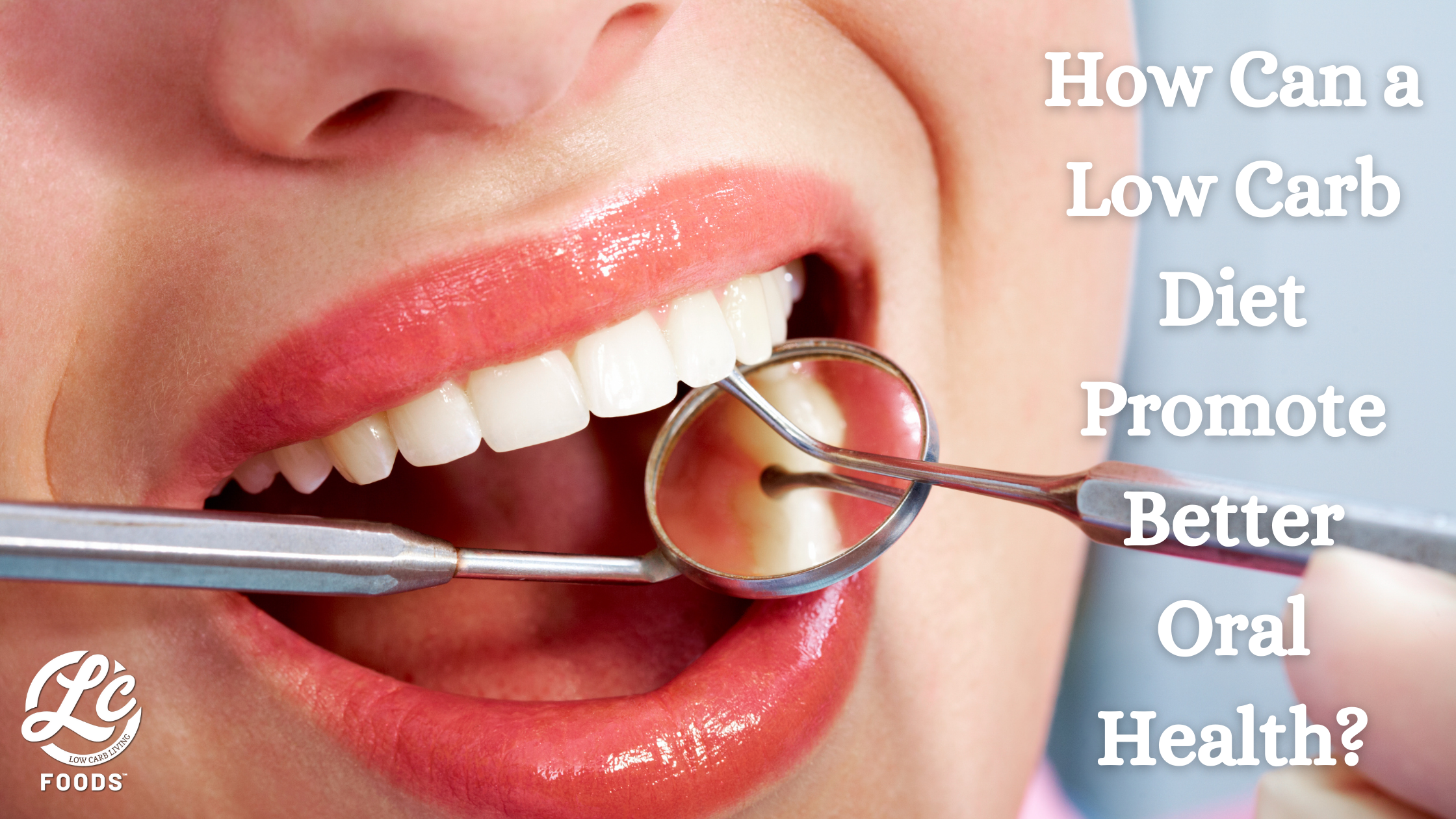
Dental caries affect up to 80% of the world’s population, with almost one-fourth of all American adults having untreated cavities. As stated in a report published in the journal Advances in Nutrition (Moynihan, 2016) added sugars are the single most important risk factor for cavities. Such is the effect sugar has on our health that the World Health Organization published guidelines recommending free sugar consumption to 10% or less of our energy take, suggesting a further reduction to 5% to protect one’s oral health throughout life. Because low-carb diets such as keto shun refined carbohydrates and free sugars, focusing instead on low-glycemic-index foods, they are an excellent ally in the fight against cavities and gum disease.
High Carb Diets and Tooth and Gum Health
Some foods—especially those containing free sugars—are harmful to gum health. Consuming a high carb diet that is rich in starches and free sugars increases the amount of sugar in saliva. This creates an ideal breeding ground for bacteria, which produce acid that attacks both the tooth enamel and the gums. These acids are particularly detrimental to blood vessels in the gums, which become damaged and, therefore, more prone to infection. Signs you have periodontal disease include bleeding of the gums when you brush your teeth or eat food, pain, and swelling. If you do have this condition, see your dentist immediately. They may give you antibiotics and suggest a professional cleaning in addition to teaching you optimal tooth cleaning and brushing techniques.
The Benefits of Low Carb Diets for Oral Health
Consuming a low carb diet can benefit your teeth and gums in various ways. The first is by keeping glucose levels in your blood and saliva at healthy levels. Thus, bacteria are less likely to thrive. Low carb diets also encourage individuals to consume healthy vegetables like broccoli, zucchini, and carrots. These foods, especially when consumed raw, act as a natural toothbrush. As you chew high-fiber foods such as these, the action massages your gums. Vegetables like carrots also contain healthy vitamins and nutrients—including Vitamin A, which can help keep your tooth enamel strong. Other foods—including Vitamin-C-rich citrus foods, can boost gum health, since bleeding gums may be a result of a Vitamin C deficiency.
Embracing Alternative Sugars
Just because you are on Keto, Paleo, or a general low-carb diet, there is no reason why you cannot enjoy sweet flavors or add a bit of sweetness to your morning cup of herbal tea. These include Xylitol, found by the Swedish Research Council to affect the bacterial composition of the oral cavity in positive ways. Another possible choice is stevia, which is 200 times sweeter than sugar despite keeping our blood sugar level under control. Erythritol is also popular as despite being up to 80% as sweet as sugar, it has only 5% of the calories.
Low carb diets are an excellent way to avoid one of the main causes of cavities and gum diseases like gingivitis: free sugars. The latter create a breeding ground for bacteria that can damage blood vessels in the gums aside from promoting plaque formation. A healthy low-carb diet that includes low-GI fruits and vegetables can help keep teeth clean and gums free from the onslaught of excessive harmful bacteria.
Submitted by Ali Hull
